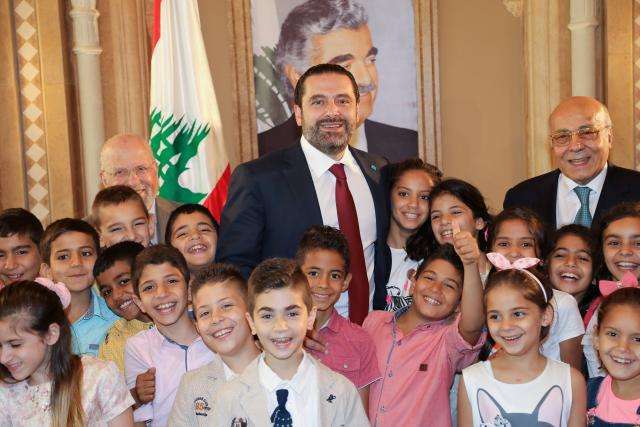The post of prime minister is reserved for a Sunni Muslim in Lebanon’s sectarian power sharing system, and the Western-backed Hariri is the clear frontrunner as the country’s leading Sunni despite losing more than a third of his MPs in a May 6 election.
Aoun is scheduled to conclude his meetings with MPs on Thursday. He is required to designate the candidate with the greatest support among the MPs.
The new coalition government is expected to reflect the enhanced political position of the Iran-backed Shi’ite group Hezbollah and allies that support its possession of arms, which together won at least 70 of parliament’s 128 seats.
All Lebanese leaders have called for the rapid formation of a new government that will aim to revitalize a stagnant economy situation and address unsustainable public debt levels.
But like the outgoing cabinet, the new government will have to balance out the interests of all the main competing Lebanese parties and may take time.
Hezbollah, which is designated a terrorist group by the United States, intends to secure three cabinet seats in the next coalition government, an increase from the two portfolios it held in the outgoing cabinet of 30 ministers, a senior official familiar with the group’s thinking told Reuters.
Hezbollah, which has to date held only marginal cabinet posts, is also seeking more significant service-providing ministries in the new cabinet, sources familiar with its thinking have told Reuters.
Hezbollah also believes a cabinet post should be allocated to one of its Sunni allies who wrested seats away from Hariri’s Future Movement.
The staunchly anti-Hezbollah Lebanese Forces party, which almost doubled its number of MPs to 15, is also seeking a bigger slice of cabinet portfolios.
Parliament re-elected the Hezbollah-allied Shi’ite politician Nabih Berri as its speaker on Wednesday, extending his tenure in the post he has held since 1992. Another Hezbollah ally, Elie Ferzli, was elected as his deputy.
More about: #Lebanon
















































